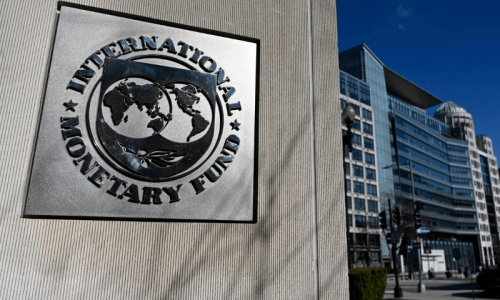British Pakistanis are cautiously optimistic. They don’t expect an instant positive change in their fortunes following the Labour Party’s landslide victory after 14 years of Conservatives rule, which has sometimes proven tumultuous. However, they hope to seize opportunities under Prime Minister Keir Starmer’s leadership to gain stability and achieve the future they aspired to when they chose to make the UK their home.
They believe Mr Starmer’s overwhelming mandate has empowered the new UK government to move boldly and decisively on their electoral promises. They anticipate an economic turnaround through innovative strategies to address key issues such as falling productivity and investment levels, creaking infrastructure, improved delivery of public services, and breaking the stubborn cycle of low GDP growth and high inflation.
“The wave of economic recovery under any government is supposed to lift all boats, but under the Labour Party, the benefits of growth are expected to be shared more equitably. The Tories, in my understanding, are less mindful of distributive justice. However, this is all theoretical until we see the current government in action over the coming days and months”, noted a keen Pakistani watcher of UK politics in London.
Pakistani diplomats in the UK were elated by the strong participation of the Pakistani diaspora in the political process and foresee rich dividends from this investment. They view 2024 as a milestone in creating a more hospitable environment for Pakistanis settled and studying in the UK. This engagement could also bolster a stronger economic and diplomatic partnership between the two nations.
Prime Minister Keir Starmer’s leadership may open up opportunities for British Pakistanis
Dr Mohammad Faisal, the High Commissioner for Pakistan in the UK, currently in the US, kindly responded to a query on this matter. In addition to praising the UK’s new leadership and hinting at upcoming high-level engagements, he highlighted the active participation of the Pakistani diaspora in public life in the country.
“It is heartening to note that 15 members of the parliament (MPs) of Pakistani descent have been elected this year. They represent the great success of the Pakistani-British community in the UK.
“Pakistan is an important regional and strategic partner of Britain. Our partnership is founded on a shared history, culture, diplomacy, development, security, trade, and the economy. The 1.6 million plus strong Pakistani diaspora in the UK and around 100,000 British and dual nationals in Pakistan further cement the bilateral relations.
“UK has been supporting Pakistan in various fields including education, health, disaster management, humanitarian response, climate-resilient recovery and macro-economic stability. It is also host to more than 40,000 Pakistani students, specializing in various fields.
‘It is heartening to note that 15 members of the parliament of Pakistani descent have been elected this year, representing the great success of the Pakistani-British community in the UK’
“We are actively engaging with the new government in UK at various levels. Pakistan is committed to working closely with Prime Minister Starmer government for further strengthening our partnership,” he said in a message forwarded by his office in London.
Dr Nadir Cheema, an academic associated with then School of Oriental and African Studies (SOAS), University of London, did not sound as upbeat over the phone. Commenting on the Pakistani community’s participation in the recent elections that tossed the Labour Party into power and its potential impact on their lives, he stated, “Pakistanis traditionally vote for Labour. However, some did not support the party because of the Labour Party’s policy on Gaza. The Labour Party lost five seats due to a disenchanted Muslim population. They would have been affected more if the Reform Party had not caused significant damage to the Tories.”
Some left-leaning doctors reaffirmed Dr Cheema’s perspective. “Disgusted with pro-Israel stance of both leading parties in the UK, I and many others I know voted for the Greens despite the strong public sentiments favouring the Labour Party,” commented a senior psychiatrist during an informal private conversation.
Barrister Rashid Aslam, a founding partner of a law firm Adam Bernard, held a different opinion. He was not particularly optimistic about the future for Pakistanis in the UK following the July 4th elections. Regarding immigration, he noted that a study of the past three election cycles shows that the debate around this issue becomes louder close to elections and subsides soon after. “The fact is that despite all the hard talk of the leaders to restrict the arrival of people seeking to settle in UK the influx of people in UK has actually increased significantly in the last four years,” he said.
Some others interviewed for this write-up were also skeptical. “It is absurd to dismiss the growing challenges for immigrants in the UK. Brits see immigrants as pollutants in already murky political waters. They are perceived as an ‘irresponsible lot’, often free riders, exerting avoidable pressure on public services. Locals are reluctant to trust desperate foreigners who are willing to flout rules on which the system is based,” stated an analyst.
The UK government announced changes to the immigration system last year that took effect early this year. In the skilled worker visa category, the minimum salary threshold has increased to 38,700 pounds or the going rate for the role, whichever is higher. Social care workers can no longer bring dependents on their visas. The list of jobs eligible for sponsorship with a reduced salary requirement has been shortened, and the minimum income to sponsor a spouse visa has nearly doubled, rising from 18,600 pounds to 29,000 pounds. n
Published in Dawn, The Business and Finance Weekly, July 15th, 2024













































Dear visitor, the comments section is undergoing an overhaul and will return soon.